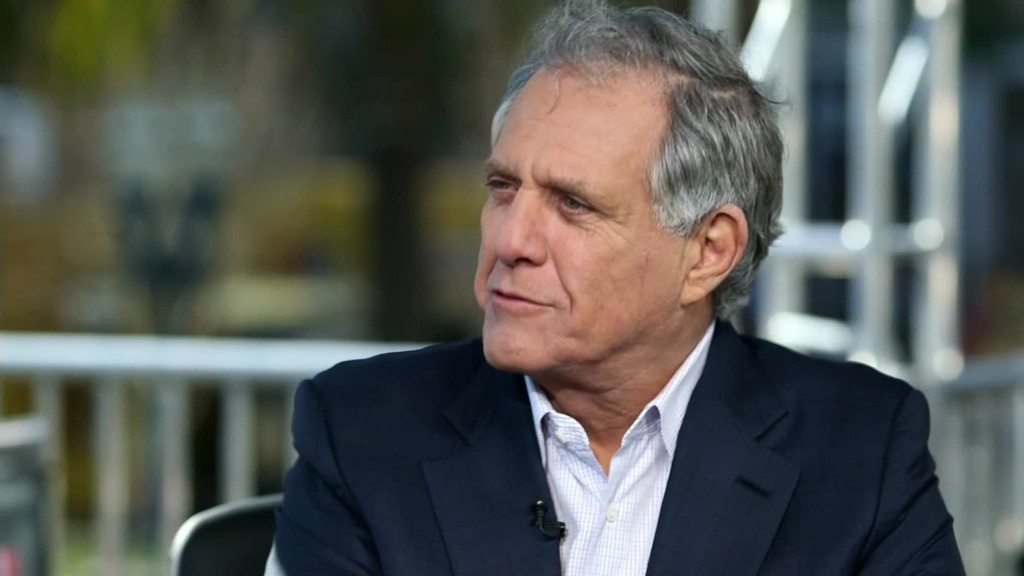
The fall TV season officially kicks off September 19. But unlike the not-that-old days, next-morning ratings won't provide the clear indicator they once did regarding what's likely to live or die.
Instead, a host of factors now play into a program's survival prospects, including, but not limited to, digital streaming deals and international sales. And even broadcasters -- who rely on ads, and thus ratings -- consider intangibles like social media footprints and how passionate the fan base might be.
Thanks to secondary revenue streams, some shows with relatively modest ratings are highly profitable. CBS' long-running "Hawaii Five-O" and "Elementary," for example, aren't huge hits on the network, but amass more than $3 million per episode from international deals.
Addressing investors in March, CBS -- which holds distribution rights on both shows -- projected that its revenue from abroad would climb roughly 50%, to $2.3 billion, by 2020.
"There's no one-size-fits-all definition of success anymore," said Kelly Kahl, senior executive vice president of CBS Primetime. "There are many factors, many of which aren't apparent."
With networks owning more of their content, there are instances when international or streaming revenue ensures that a series is profitable even before it premieres. "It does take the pressure off a little bit," Kahl said.
Shifting consumption patterns and rating metrics have also complicated discerning how well a program is actually doing in the early going. That's in part because those who watch shows online tend to be much younger than their counterparts who view via traditional broadcast airings.
Related: TV diversity sees growth as viewing becomes more siloed
The CW network is a virtual poster child for this evolving model, banking on digital revenue -- bolstered by its relationship with Netflix -- to help finance its series. Nor does it hurt that some of its more expensive shows, such as the superhero series "The Flash" and "Arrow," have been widely sold abroad by Warner Bros., which co-owns the network with CBS.
When CW launched, "Digital was a marketing tool only, and there was no streaming," said Rick Haskins, executive vice president of marketing and digital programs. "Early on, we said, 'A screen is a screen is a screen,' and people like to watch their shows on different screens."
CW's audience generally skews younger than that of other broadcasters, with a median age (meaning half fall below and above that line) of 43. But its digital profile is 20 years younger, with more of those people now watching content on mobile devices, like phones and tablets.
To be fair, programs that tank on the network often don't fare any better on other platforms, and series that are ratings winners tend to benefit disproportionately from delayed viewing, in a "the rich get richer" way.
Yet the shifting methods of gauging profitability and late-arriving data from second-chance viewing can bolster a program's fortunes -- and dictates that network programmers exhibit more patience with struggling shows that once would have been summarily canceled.
Related: 'Better Things,' 'One Mississippi' ride TV's dark comedy wave
For its part, the Fox network joined corporate sibling FX and several other basic-cable channels in announcing last November that it would stop issuing next-day ratings. Executives said those numbers are "no longer relevant" and provide an incomplete picture, given how a show's performance can change when delayed viewing is taken into account.
"Nothing could be more antiquated than a decades-old measurement that reflects only a portion of our audience," Fox said in a memo to staff, noting that most shows see their audience rise by a third within a week -- and can more than double when that time frame is extended to a month.
Of course, networks are usually happy to distribute ratings when a rival's show does poorly, and as on-air promos illustrate, most still relish making claims about being "the most-watched network" -- which, as image-building exercises go, certainly sounds better than "We make the most money."
"We want to win," Kahl said. "That's part of our DNA here."


